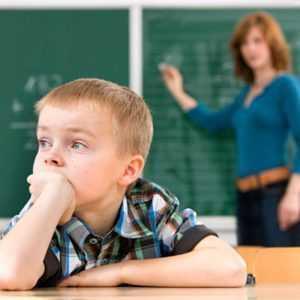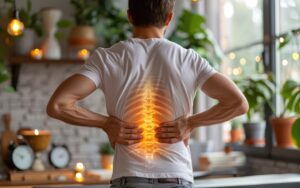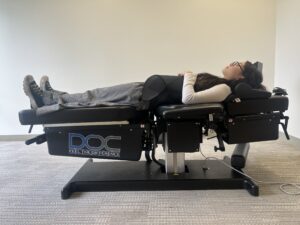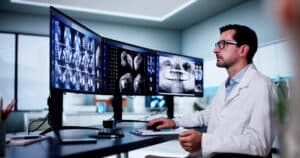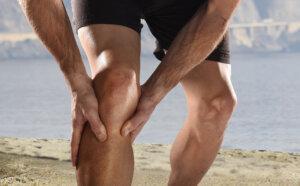Attention deficit hyperactivity disorder (ADHD) has quickly become one of the most common behavioral conditions among children and young adults.
In the United States alone, every year, approximately 4.5 million children between the ages of 5-17 years old are diagnosed with ADHD or ADD.
So, does acupuncture for children with ADD really work?
Research indicates that when treating ADHD, a multidisciplinary approach is most effective; combining behavioral therapy, exercise, dietary changes, and medication. Fortunately, acupuncture can now be added as one of the treatment methods that successfully manage ADHD and ADD.
My brother was diagnosed with ADD as a child. Like those afflicted, he was prone to inattention, hyperactivity, and impulsiveness. This complicated daily functions like attending school or maintaining personal relations. Today, doctors are more likely to treat this behavioral disorder with drugs as opposed to the simple, inexpensive, and safe treatment that acupuncture offers.
What Exactly Is ADD/ADHD?
As mentioned, children with ADD or ADHD generally struggle with paying attention or concentrating. They struggle when following directions and can become easily bored or frustrated with simple tasks. While this behavior can be attributed to general childlike attitude, they present themselves more severely in children with this condition.
With adults, ADD or ADHD can present itself as difficulty with time management, organizational skills, goal setting, and employment. They may also have problems with relationships, self-esteem, and addictions.
Homogenized Treatment
Rather than address this issue with a holistic approach, big pharmaceutical companies have made a fortune in distributing Ritalin and Adderall, among others, the drug of choice for individuals with ADD or ADHD. Many health-conscious parents are quickly learning about the side effects of Ritalin on their children. They are taking a strong stance against the use of Ritalin due to its addictiveness.
McNeil, the company that makes Concerta, one of several stimulants used for ADHD kids, reaped $800 million last year on that drug alone.
This may come as a shock to most. But helping this widespread distribution is the ADHD evaluation checklist teachers use to assess children that are printed and distributed with the backing of the American Academy of Pediatrics.
ADD and ADHD drugs are speed.
They increase focus and the appearance of attentiveness, but there’s no evidence they improve learning. Only the superficial traits are addressed and nothing is done to remedy the residual effects on children and adults.
ADD and ADHD is best managed when families and health professionals work together to meet the unique needs of the child or adult who has it. To help them learn to focus their attention should be emphasized. In addition, help them to develop their personal strengths, minimize disruptive behavior, and become productive members of society. Acupuncture is an excellent addition to any treatment plan. It is used to help the body restore balance by treating the root cause, while also diminishing the symptoms of ADHD.
If your child suffers from ADHD, he/she may be displaying any or all of these symptoms:
- Is often unable to wait for his/her turn
- Has trouble paying attention, or seems to have a very short attention span
- Listening is a challenge, even when being spoken to directly
- Hard to finish something from start to finish. Hard following directions as well.
- Distracts others or is easily distracted
- May experience forgetfulness
- A great deal of fidgeting
- A tendency to leave his/her seat without warning
- Runs or climbs repeatedly when inappropriate for the situation
- Difficulty playing calmly and/or quietly
- Talks too much
How Does Acupuncture Help ADHD?
In a recent randomized controlled trial, a total of 100 children with ADHD were equally divided into two groups. The group that received acupuncture and biofeedback focused on scalp acupuncture that targeted the following acupuncture points:
- Dingzhongxian (MS 5)
- Dingpangyixian (MS 8)
- Baihui (GV 20)
- Sishencong (EX-HN 1)
This treatment of acupuncture and biofeedback achieved a 91.5% total effective rate. Children receiving only biofeedback achieved an 83.3% total effective rate. Based on these findings, the researchers were able to conclude that acupuncture plus biofeedback created a synergistic clinical effect. This, in turn, produced positive patient outcomes. Given the complexity of ADHD and its treatment regimens, further investigations may help specific protocols that will yield maximum efficacy.
Is Acupuncture Safe For ADHD?
Due to the safe nature of the therapies acupuncture is often the first choice for children with ADHD. Clinical trials dating back to the 1980s have shown Chinese herbs alone to help ADHD children. In fact, most of the reports that have emerged in more recent years have shown some promising results.
The Take-Away
Acupuncture helps to:
- Improve focus and attention
- Manage moods
- Reduce fidgeting
- Lower hyperactivity
- Enhance concentration
- Boost the brain
There is still room for further large-scale RCT studies. Still, acupuncture is quickly coming to the forefront as an option for ADHD and ADD. This is not a simple problem and as such it does not have a simple answer, so, it stands to reason that while acupuncture helps target and address key symptoms of ADD and ADHD supplementary behavior such as diet and exercise is also necessary to see continued positive results.
To experience the benefits of acupuncture, schedule an initial consultation for evaluation and first treatment.
Continue reading about how chiropractic and acupuncture together can help you.
